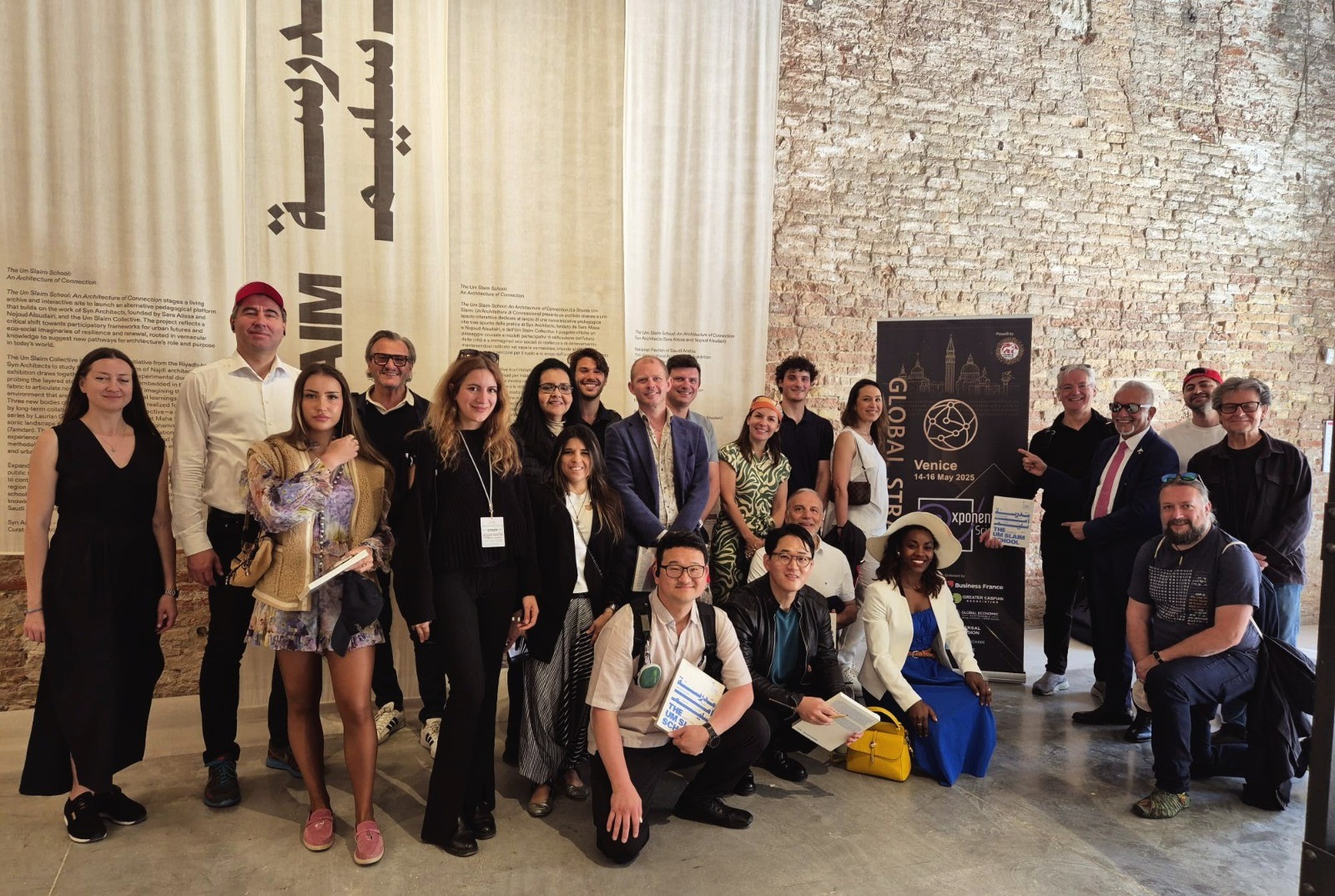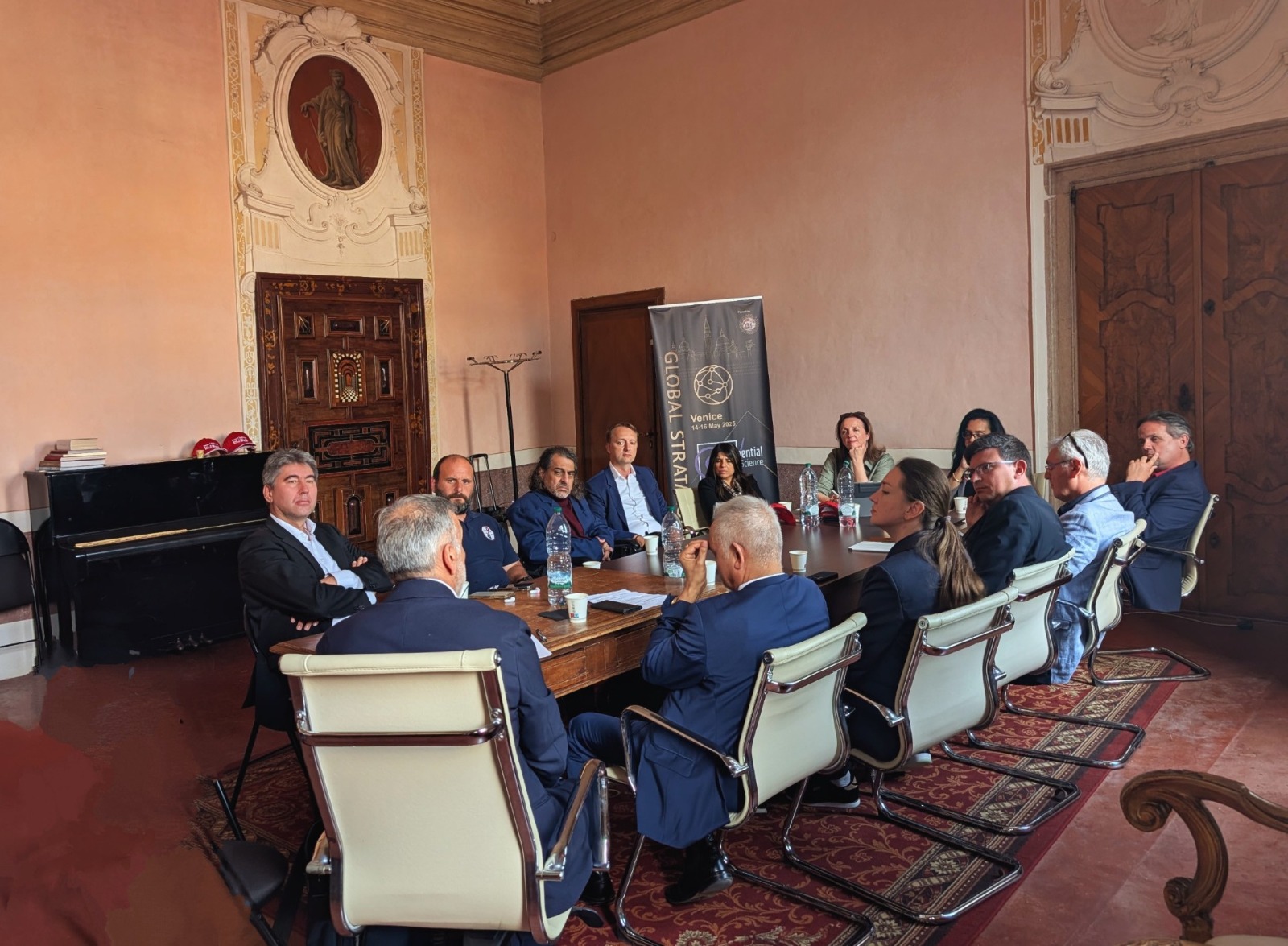
Saudi Pavilion at Biennale Architettura hosts Global Stratalogues Delegation
In the shadow of Venice's ancient palazzos, an unlikely group gathered recently to discuss how can money build better cities for everyone? The three-day Global Stratalogues, organized in partnership with Venice Tech Hub and featuring a high-level delegation from the Gulf, Europe, South Korea, the US, and South America, was hosted by the Architecture and Design Commission, Ministry of Culture, of Saudi Arabia at the Saudi Pavilion at the Biennale Architettura.
It showcased the transformation of Najdi architecture in central Riyadh, as well as the link between heritage and contemporary urban life. Their mission? To reimagine how capital flows can create more inclusive, sustainable cities and healthy societies. Dr. Talal Al Harbi arranged the visit to the world's most iconic architecture exhibition. He is the accessibility expert for Saudi Arabia's Giga Projects, part of the team designing cities for the 2030 World Expo and the FIFA World Cup.
Al Harbi said: "We are building for future generations that will demand flexibility, dignity, and participation at every level." His vision aligned with the forum's core theme: that design—whether financial, urban, or digital—must be inclusive by default. The core premise of the opening roundtable was on impact finance, health, and accessibility, led by Giselle Alers of the Global Economic Sustainable Development Commission (GESDC) and Jacqueline Winstanley, CEO of Universal Inclusion.
Together, they challenged a fundamental assumption about finance: that making money and making a positive impact are separate goals. "We can't continue seeing impact as a subset; it is the overarching frame for how we should think about investment," declared Giselle Alers.
This new approach measures success beyond simple returns, factoring in job creation, environmental stewardship, and whether investments improve people's lives. However, participants weren't discussing charity — they were discussing profitable business models that happen to do good. The Venice gathering will build on the publication of the landmark Policy Briefing titled "Designing for Inclusive Futures: Policy Reflections on AI and Accessibility."

The paper, authored by Dr. Rukiya Deetjen-Ruiz of Zayed University and co-authored by Oscar Wendel, Founder of Global Stratalogues, synthesizes the key findings from the high-level roundtables. It distills insights from the UK Parliament sessions held in January and served as a springboard for both the Global Stratalogues edition in Venice and the Inaugural Policy Roundtable hosted by the Qatar Financial Centre alongside the Qatar Economic Forum.
In Venice, contributions from thought leaders such as AI World Alliance founder Ilya Churakov helped shape the final recommendations, building on the momentum of a three-day forum that bridged institutions, disciplines, and geographies. "Venice reminded us that inclusion is not only technical. Just as AI must reflect our values, cities must reflect our shared humanity."
On the sidelines of the event, a rooftop concert was organized. The summit's closing night brought an unexpected full-circle moment. Saxophonist Scott Page returned to Venice 36 years after his performance with Pink Floyd at their legendary floating concert that drew 300,000 spectators to St. Mark's Square. This time, the intimate rooftop performance at Palazzo Pissani captured the spirit of the week, bringing together seemingly different worlds.
Page's saxophone blended with Forieri's jazz as the sun set over Venice's historic canals — a reminder that the best innovations often come from unexpected collaborations, and tradition and innovation work best when they harmonize. In conclusion, it is important to mention that the Global Stratalogues will take place in Riyadh on December 16-17, 2025, and continue building on these discussions.
Along with the publication of actionable policy recommendations and the commitment to provide both the inspiration and the practical framework needed to make that translation possible, these ideas are translated to the boardrooms and city halls where real change occurs. Oscar Wendel reflected: "The future of cities depends not only on how we build, but on how we connect across time, geography, and imagination."








